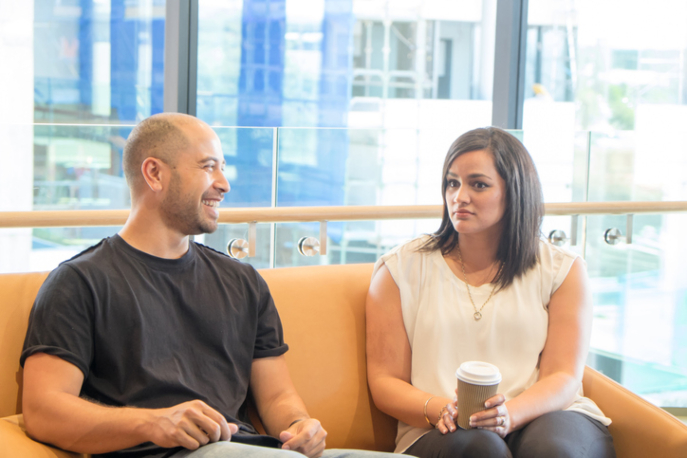At the height of the “Me Too” movement, we heard survivors sharing their stories of powerful entertainers and executives abusing their power. Unfortunately, we also heard pushback from others in the industry, many of whom used the “good guy” defense.
The “good guy” defense is a subconscious strategy deployed frequently to dismiss harassment and sexism. It includes statements such as “He didn’t mean it like that, he’s good guy,” or “Don’t take it personally. He’s a good guy,” and it’s harmful to the safety of any workplace or shared environment. It’s important to note that while it’s known as the “good guy” defense, it certainly applies to any person—regardless of gender—participating in forms of prejudice or harassment.
An article from the Harvard Business Review explains why that phrase, “they’re a good guy,” is so damaging to the people experiencing discomfort and/or abuse.
Calling a person who did harm “good,” in the face of a complaint implies that that person’s behavior is always positively intended in all contexts and thus other people’s perspective doesn’t matter. In addition, it totally relieves the harm-doer of accountability. These consequences of the “good guy” defense contribute to making everyone feel unable to speak up if they are in an uncomfortable interaction.
People are complex and nuanced – and our experiences of each other vary greatly. So, while one person may sincerely have a positive rapport with a person who has done harm, that does not automatically mean everyone else does as well. If someone makes a complaint about someone else, the best thing to do is to validate their experience and take the proper steps outlined by the workplace conduct guide to provide them with support. Depending on the context, that could mean helping them file a report or find a sexual assault resource center so they can explore their options. Always consult workplace guidelines.
With more self-awareness, we can find better ways to make the workplace a safe environment for all colleagues.
RALIANCE is a trusted adviser for organizations committed to building cultures that are safe, equitable, and respectful. RALIANCE offers unparalleled expertise in serving survivors of sexual harassment, misconduct, and abuse which drives our mission to help organizations across sectors create inclusive environments for all. For more information, please visit www.RALIANCE.org.

